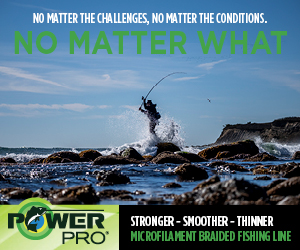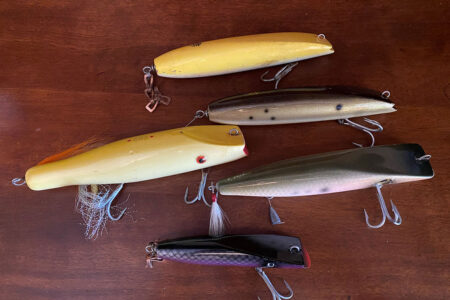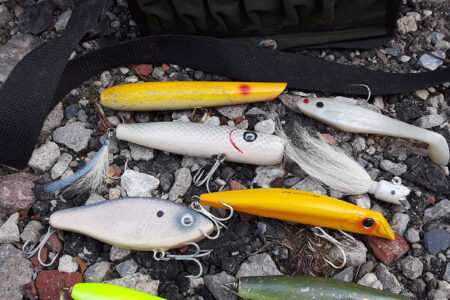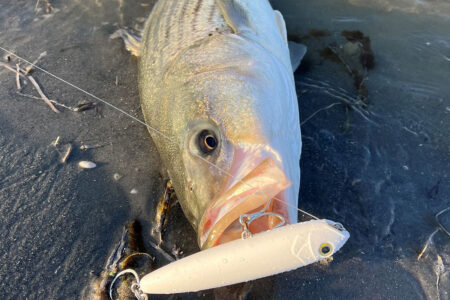Consider trying a new technique to make the bite more of a challenge.
Catching dozens of stripers can be incredibly fun. The striper is such a fantastic fish for so many reasons, but one of the reasons is its schooling nature. Particularly during spring and fall migration, it is not uncommon for thousands of schoolies to be traveling together or even substantially larger fish. Running into one of these schools— either by walking and casting or sticking to a single piece of structure can lead to explosive action and unforgettable memories. I think having a night of catching dozens of fish, and getting hits every cast, is a rite of passage in the surf. It can awaken something in an angler and redefine what success means. The same is true when an angler catches their first massive fish—whatever that may mean to you. However, typically, an angler will encounter a big school of smaller fish earlier in their career and more often throughout it. For me, this transformative moment came on a South County Rhode Island beach, and I will never forget that tide for the rest of my life. I caught 36 fish, and not a single fish was over 30 inches, but up to that point, I had only been catching about 100 fish in an entire season. It blew my mind and completely changed my definition of success.
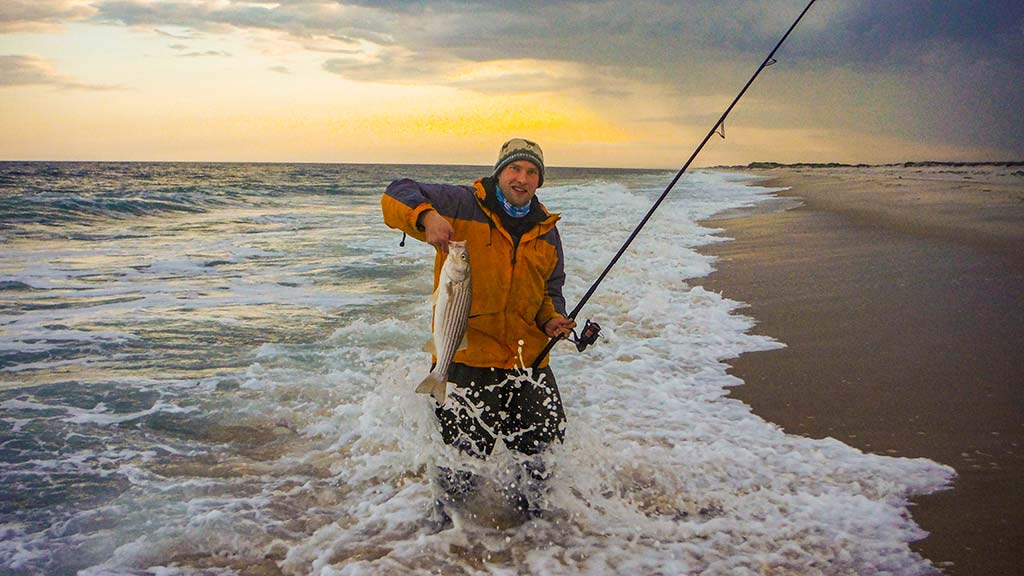
A blitz is something I hope all surf fishermen get to experience at least once. However, we must also consider our impact when engaged in an all-out blitz of feeding fish. Typically these are smaller fish, and when the action is red hot, it is often pretty easy to catch them. It frustrates me when I see anglers using plugs with giant trebles or three sets of trebles in these situations. There is simply no need for it, and it can be intensely damaging for the fish. It makes me even more upset when I see them carelessly ripping the hooks out and throwing or kicking the fish back into the water. This practice is not the way to enjoy these gifted situations. True, sometimes new anglers or those who have never had this opportunity don’t know any better. That was me, on that fateful night in Rhode Island. I was using a Bomber plug, and with its six hook points, I was catching fish in the eyes and gills, and I know for sure I killed a few fish that night. It puts a bit of a blot on the memory for me, if I am honest.
But that is why I’m writing this short article. We have seen good numbers of smaller stripers in the last couple of seasons due to the 2015 year class being far above average. I expect by the time you’re reading this, most of the coast will either be engaged in hot fall action or will be on the cusp of it. If you get into one of these giant schools of smaller fish, consider switching to single hook lures and crimping your barbs. If you must use a treble hook in these situations, crushing barbs is a no-brainer: it’s not just better for the fish but also better for your hands!
Further, consider trying a new technique to make the bite more of a challenge. After a while, hammering schoolie after schoolie starts to feel like gluttony to me. Personally, fishing is as much about the challenge as the action. Eventually, a bite such as I am describing here shifts from fun to repetitive. However, even if you enjoy these fall blitzes, switching to a different technique can result in larger fish.
One fall, my friend and I were picking fish all afternoon with poppers. They were small, but they were plentiful, and we were enjoying ourselves. However, I started to get bored and suggested my friend try a swimmer. The very first cast I had a fish that probably was about 15 pounds—nearly double the weight of anything we had caught previously. From that point on, we both had multiple fish that were large or larger.
The point of this article is simple: everyone should have a chance to enjoy fast and furious fall action. We must all do our part to ensure that others have the same opportunity in the future. Sometimes, this means changing your plug or changing your tactic. Other times, this might mean simply walking away when it starts to feel like you’ve crossed a line. No one can tell you to do this or what the line is, but I encourage you to think about it this fall and decide for yourself. And for the generations of fishermen that come after you.
